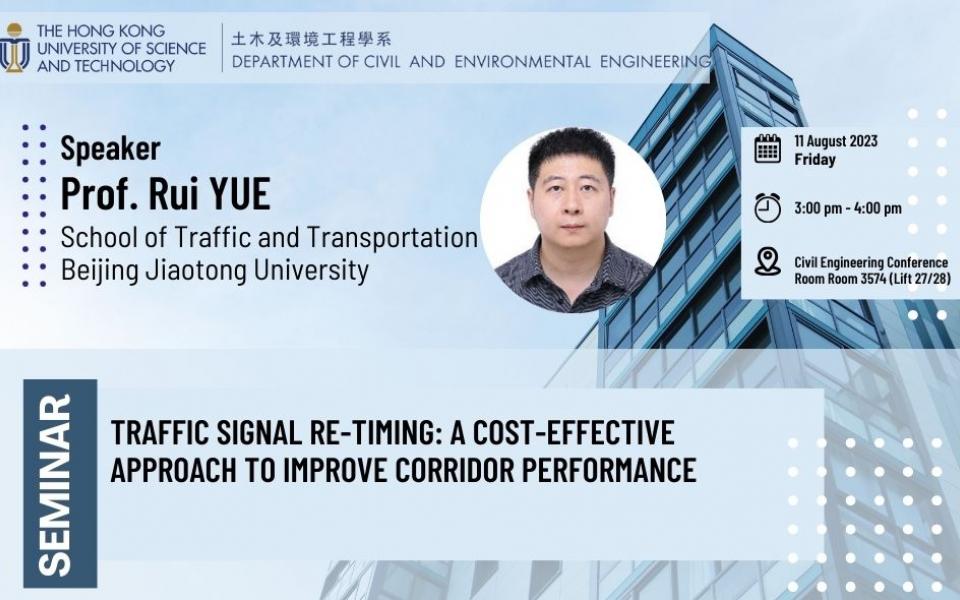Civil Engineering Departmental Seminar - Traffic Signal Re-timing: A Cost-Effective Approach to Improve Corridor Performance
Supporting the below United Nations Sustainable Development Goals:支持以下聯合國可持續發展目標:支持以下联合国可持续发展目标:
Traffic Signal Re-timing: A Cost-Effective Approach to Improve Corridor Performance
Traffic signal retiming involves periodically updating existing signal coordination plans of signalized corridors. Nevertheless, there are still several limitations with the current signal retiming practice, such as managing a large set of signal coordination data, optimizing coordination parameters, diagnosing timing errors, and assessing signal coordination performance. To fill these gaps, this seminar will introduces a novel signal retiming approach that offers transportation engineers an alternative way to assess and improve the operation of existing coordinated corridors. It allows for displaying the vehicle trajectories in the time-space diagram (TSD), based on which, transportation engineers could diagnose the potential issues with a signal coordination plan and develop an optimized signal coordination plan for the corridor. In addition, a unique signal performance index (SPI), which took into account average travel speed, number of stops, cycle length, and segment length adjustments, was developed to grade the performance of a signal coordination plan.
Dr. Rui Yue is currently an assistant professor at Beijing Jiaotong University. He acquired his B.E. from Beijing Jiaotong University, M.S. and Ph.D. from the University of Nevada, Reno. He is devoted to signal coordination and optimization, and capacity analysis. His research interest includes traffic signal timing optimization and evaluation, adaptive signal control systems, data-driven signal control optimization, signal control and emission. His research was mostly published in the Journal of Transportation Engineering, Part A and Transportation Research Record.
